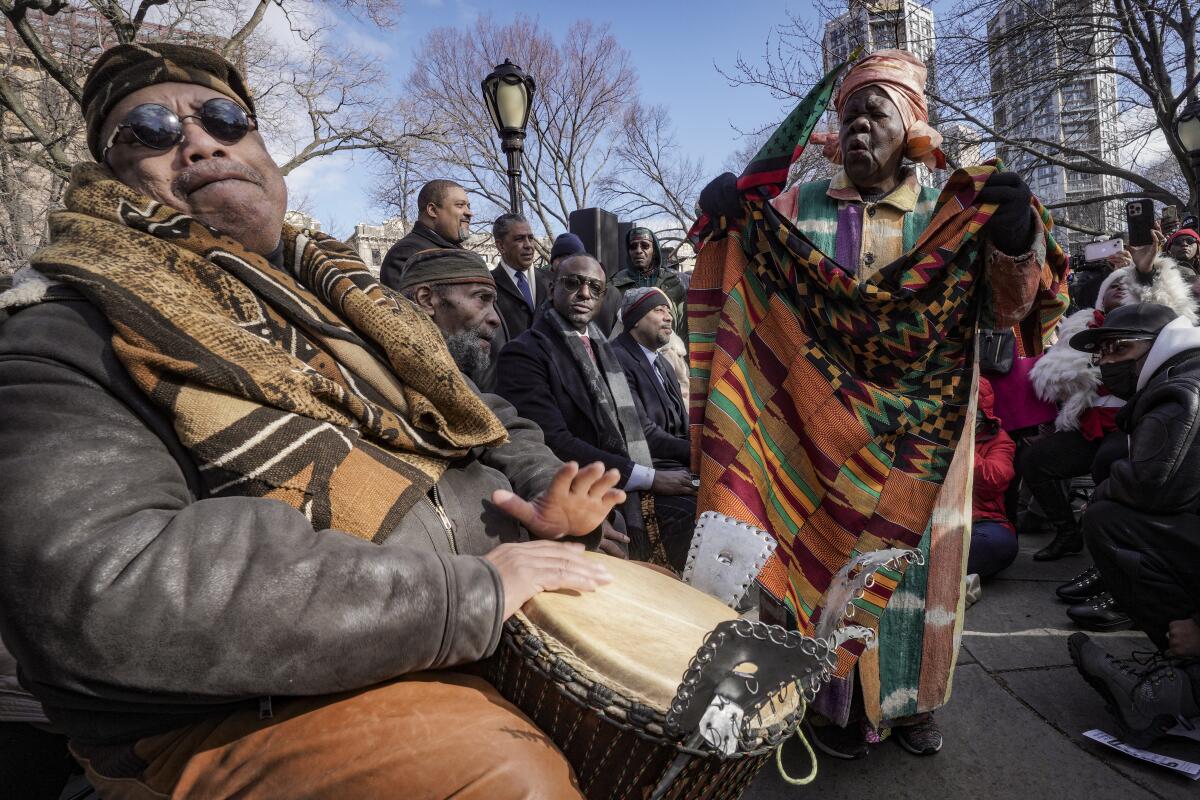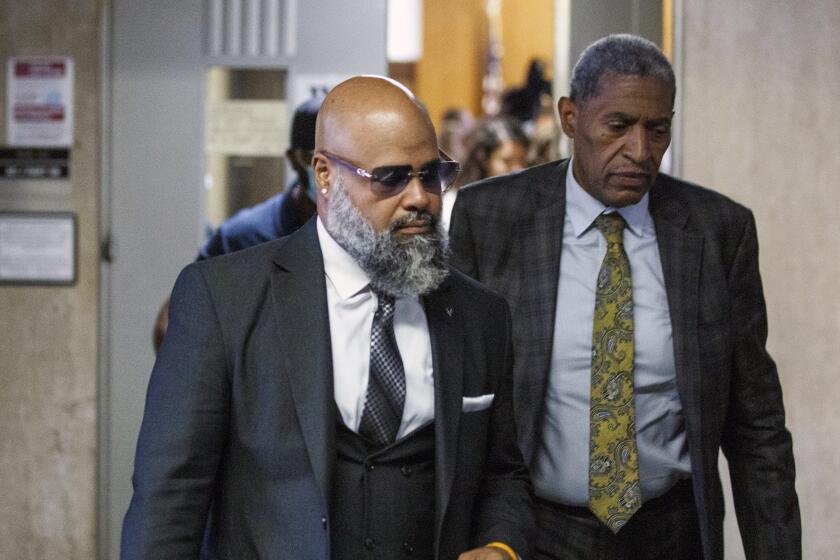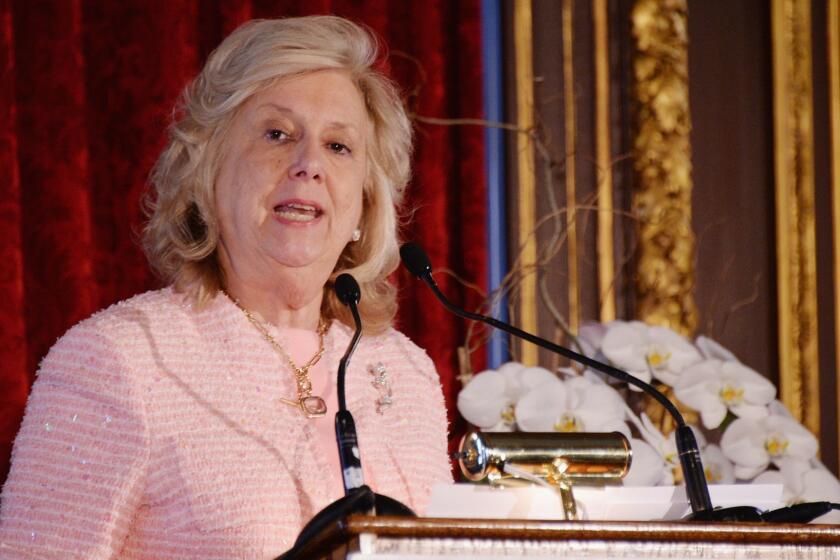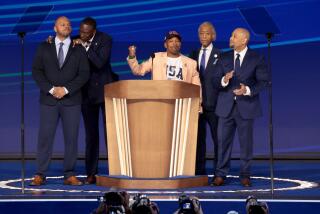Central Park gate honors men wrongly imprisoned in 1989 rape of jogger

- Share via
NEW YORK — At a small patch of Central Park flanking New York’s Harlem neighborhood, scores came Monday to remember the injustice that put five Black and Latino teenagers in prison after they were wrongly accused and convicted of the 1989 rape of a white jogger.
Supporters arrived in the morning chill, some singing hymns, to dedicate a park entry to the men once known as the Central Park Five but now remembered as the Exonerated Five.
The entryway, located on the northern perimeter of the park between Fifth Avenue and Malcolm X Boulevard, will be known as the “Gate of the Exonerated.” It commemorates the miscarriage of justice that not only befell the five men, organizers say, but unknown others who might have been wrongly imprisoned.
“This is a moment. This is legacy time,” said one of the men, Yusef Salaam.
“We are here because we persevere,” he said to a cheering crowd.
Monday was the first time Raymond Santana, another of the men, now in his 40s, has returned to Central Park since that fateful day 33 years ago.
A co-defendant of the so-called Central Park Five has had his conviction on a related charge overturned.
Santana was 14 and Salaam was 16 when they and three others — Kevin Richardson, then 14; Korey Wise, 16; and Antron McCray, 15 — were wrongly tried for the rape of a 28-year-old woman whose brutal attack left her with permanent injuries and no memory of the assault. The high-profile incident prompted police to round up Black and Latino men and boys in connection with the attack.
“We were babies who had no dealing with the law. Never knew what Miranda was,” said Santana, as he recounted his confusion when police took him in and began interrogating him.
Matias Reyes, a convicted murderer and serial rapist, later confessed to the crime.
The convictions of the Central Park Five were thrown out in 2002 after the youths, by then young men, had served six to 13 years in prison.
Linda Fairstein, prosecutor in the Central Park Five case, is suing Netflix and Ava DuVernay for defamation
“It needs to be known what we went through. We went to hell and back,” said Richardson. “We have these scars that nobody sees.”
Santana, Salaam and Richardson — Wise and McCray could not attend Monday’s ceremony — spoke about how the criminal justice system is stacked against people of color.
The gate, they said, would stand as reminder of the injustice of the past but also of those still being committed today.
“This is an important time right here. The Gate of the Exonerated, this is for everybody,” Richardson said. “Everybody that’s been wronged by cops.”
Salaam, one of the five convicted in 1989 for a crime they didn’t commit, collaborated with author Ibi Zoboi on the verse novel “Punching the Air.”
The modest commemoration, words etched in stone on a waist-high wall, was years in the making.
Other entrances to the park have been labeled to reflect groups of people who live and work in the city, with names like Artisans’ Gate, Scholars’ Gate and Strangers’ Gate.
Mayor Eric Adams, who was just starting his career as a New York City police officer during the 1989 episode, came to the ceremony to pay tribute to the men.
“To these soldiers here, you personify the Black male experience,” the mayor, who is also Black, said.
Alvin Bragg, who now leads the Manhattan District Attorney’s Office, apologized for their ordeal.
“The truth is, we shouldn’t be here today,” he said, alluding to past mistakes.
More to Read
Sign up for Essential California
The most important California stories and recommendations in your inbox every morning.
You may occasionally receive promotional content from the Los Angeles Times.












